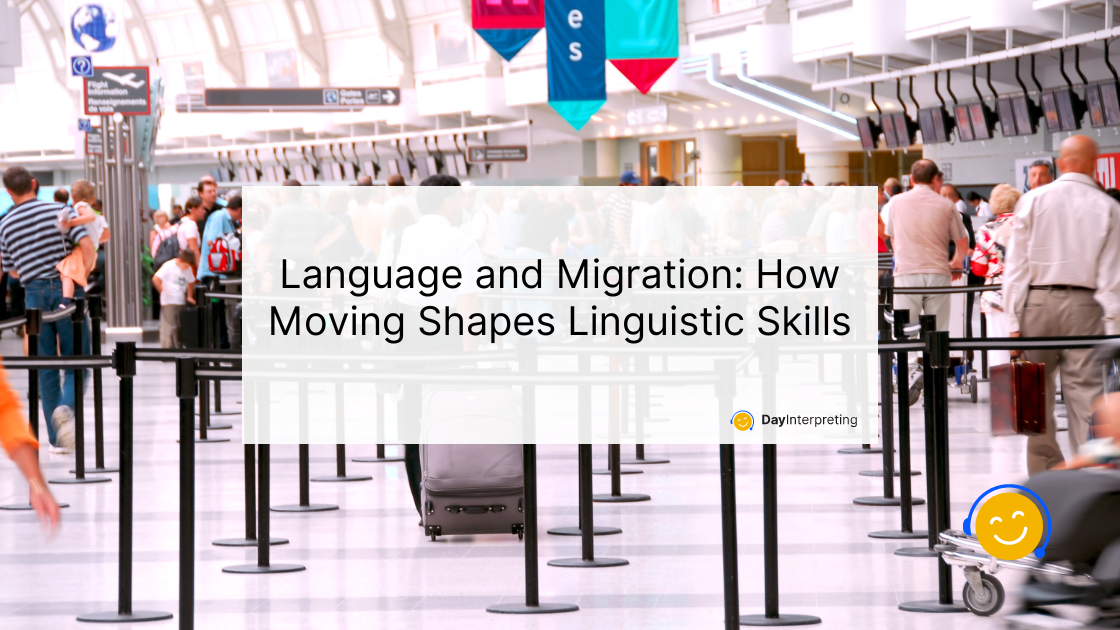Migration, a concept as old as humanity itself, holds within it a fascinating transformation – the evolution of language. As we embark on this journey of exploration, we delve into the intriguing realm of how relocation shapes and alters linguistic skills. Welcome to the world of language and migration!
Learning New Languages
When people move to a new country, they often need to learn a new language. Imagine moving from the United States to France. You might speak English at home, but now you need to speak French to talk to your new friends and teachers. Learning a new language can be challenging, but it is also very exciting! You get to discover new words, sounds, and even ways of thinking.
Mixing Languages
At times, the process of migration leads to a fascinating linguistic phenomenon-code-switching. Imagine you relocate to Mexico from Canada. You might find yourself conversing in Spanglish, a delightful blend of Spanish and English. This linguistic fusion is a testament to the richness of your linguistic repertoire. It’s not just about convenience, but also about the joy and creativity that comes with mixing languages, a unique expression of your cultural identity.
Keeping Your First Language Strong
Embracing a new country doesn’t necessitate abandoning your native language. In fact, many individuals strive to maintain the strength of their first language. They converse in it at home, immerse themselves in literature and movies of their homeland. This commitment not only preserves their cultural ties but also equips them with a powerful tool-bilingualism. The ability to speak two languages is a superpower that can enhance your academic and professional prospects.
Learning Local Dialects
Every language has different dialects, which are variations in how the language is spoken. If you move from one part of a country to another, you might notice people speaking a little differently. For example, English spoken in New York City sounds different from English spoken in Texas. Learning the local dialect helps you fit in and understand the local culture better.
Improving Communication Skills
Migrating helps improve communication skills in many ways. When you learn a new language, you also learn how to express yourself more clearly. You become better at listening and understanding others. You might even pick up non-verbal communication skills, like using gestures or facial expressions, which are very important in many cultures.
Boosting Cognitive Abilities
Learning and using multiple languages can boost your brainpower. Studies show that bilingual and multilingual people often have better memory, problem-solving skills, and creativity. Moving to a new place and learning new languages makes your brain work harder, which can make you smarter and more adaptable.
Adapting to New Accents
Accents are the unique way people pronounce words. When you move to a new place, you might pick up a new accent. This is a natural part of adapting to your new environment. It can also make you sound more like a local, helping you fit in better with your new community.
Understanding Cultural Nuances
Language is deeply connected to culture. When you learn a new language, you also learn about the culture and traditions of the people who speak it. For example, you might learn special greetings, polite ways to ask for things, or traditional sayings and expressions. This helps you understand and respect the people around you better.
Making Friends and Connections
Language is a powerful tool for making friends and connections. When you move to a new place and learn the language, you can communicate with new people and build relationships. This makes it easier to feel at home and create a support network in your new environment.
Overcoming Language Barriers
Moving to a new place can be tough, especially when you don’t speak the language well. But overcoming language barriers builds resilience and confidence. Each time you successfully communicate, you grow more confident in your abilities. This helps you in many other areas of life, too.
Keeping Up with Global Trends
In our globalized world, knowing multiple languages is a big advantage. It helps you keep up with global trends, access more information, and connect with people from different parts of the world. Moving and learning new languages opens up opportunities for travel, work, and friendships across the globe.
Final Thoughts on Language and Migration
Migration shapes linguistic skills in many exciting ways. It helps you learn new languages, mix languages creatively, keep your first language strong, and understand local dialects. Moving boosts communication skills, cognitive abilities, and helps you adapt to new accents. It also deepens your understanding of cultural nuances, helps you make friends, and overcome language barriers. Plus, being multilingual keeps you connected to global trends. So, if you ever get the chance to migrate, remember how it can positively shape your linguistic skills and enrich your life!





0 Comments